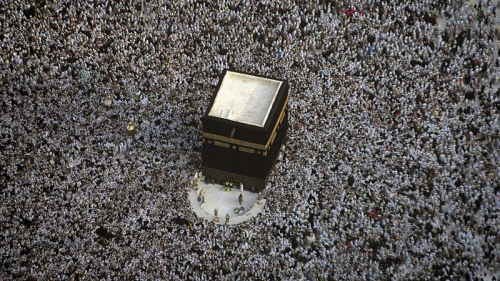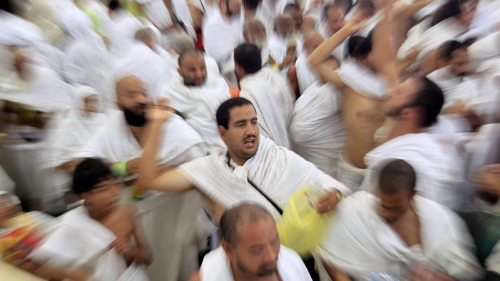Celebrated humanitarian Abdul Sattar Edhi passes away

Celebrated humanitarian and Edhi Foundation Chairman Abdul Sattar Edhi passed away in Karachi on Friday night.
Speaking outside the hospital, the philanthropist's son announced that Edhi’s funeral prayers will be offered on Saturday after Zuhr prayers at Memon Masjid, after which he will be laid to rest at Edhi village.

"He wished to be buried in the same clothes he used to wear. He also wanted to donate his body parts, but only his cornea can be donated as rest of the organs were not in healthy condition," said Faisal Edhi.
Edhi was diagnosed with kidney failure in 2013 but had been unable to get a transplant due to frail health. He was receiving treatment at the Sindh Institute of Urology and Transplantation (SIUT).
Earlier in the day, the philanthropist's son Faisal and wife Bilquis Edhi informed the media that doctors at the facility termed his condition critical.
He felt difficulty while breathing "after which the doctors decided to shift him on a ventilator".
In June, Edhi declined an offer by former president Asif Ali Zardari for treatment abroad, insisting on getting it done in Pakistan, particularly in a government hospital.
Edhi’s journey
Born to a family of traders in Gujarat, Mr Edhi arrived in Pakistan in 1947.
The state’s failure to help his struggling family care for his mother – paralysed and suffering from mental health issues – was his painful and decisive turning point towards philanthropy.
In the sticky streets in the heart of Karachi, Mr Edhi, full of idealism and hope, opened his first clinic in 1951. “Social welfare was my vocation, I had to free it,” he says in his autobiography, ‘A Mirror To The Blind’.
Motivated by a spiritual quest for justice, over the years Mr Edhi and his team created maternity wards, morgues, orphanages, shelters and homes for the elderly – all aimed at helping those who cannot help themselves.
The most prominent symbols of the foundation – its 1,500 ambulances – are deployed with unusual efficiency to the scene of terrorist attacks that tear through the country with devastating regularity.
A national hero
Revered by many as a national hero, Mr Edhi created a charitable empire out of nothing. He masterminded Pakistan’s largest welfare organisation almost single-handedly, entirely with private donations.
Content with just two sets of clothes, he slept in a windowless room of white tiles adjoining the office of his charitable foundation. Sparsely equipped, it had just one bed, a sink and a hotplate.
“He never established a home for his own children,” his wife Bilquis, who manages the foundation’s homes for women and children, told AFP in an interview this year.
What he has established is something of a safety net for the poor and destitute, mobilising the nation to donate and help take action – filling a gap left by a lack of welfare state.
Mr Edhi has been nominated several times for the Nobel Peace Prize, and appeared on the list again this year – put there by Malala Yousafzai, Pakistan’s teenage Nobel laureate.
Condolences pour in
Abdul Sattar Edhi’s tireless work has helped save hundreds of thousands of lives and shown us what it means to be a man who works for the people, read a statement issued by PM Office.
“Despite all his success, he has always stayed humble, living a simple life in a small house barely large enough to encapsulate his enormous heart.”
In his most difficult hour, may Allah bestow upon him all the fortune that he bestowed upon the people of this country and treat him with the care that a man of his stature deserves, the statement added.
( Source: Dawn )
*******************************
Wiki - Abdul Sattar Edhi (1928 - 2016)
Obituary - Abdul Sattar Edhi - A life bigger than accolades
Autobiography - Abdul Sattar Edhi: A Mirror To The Blind
Topics: Humanitarian Aid, Obituary, Social Change, Social Justice
Views: 3304
Related Suggestions

















